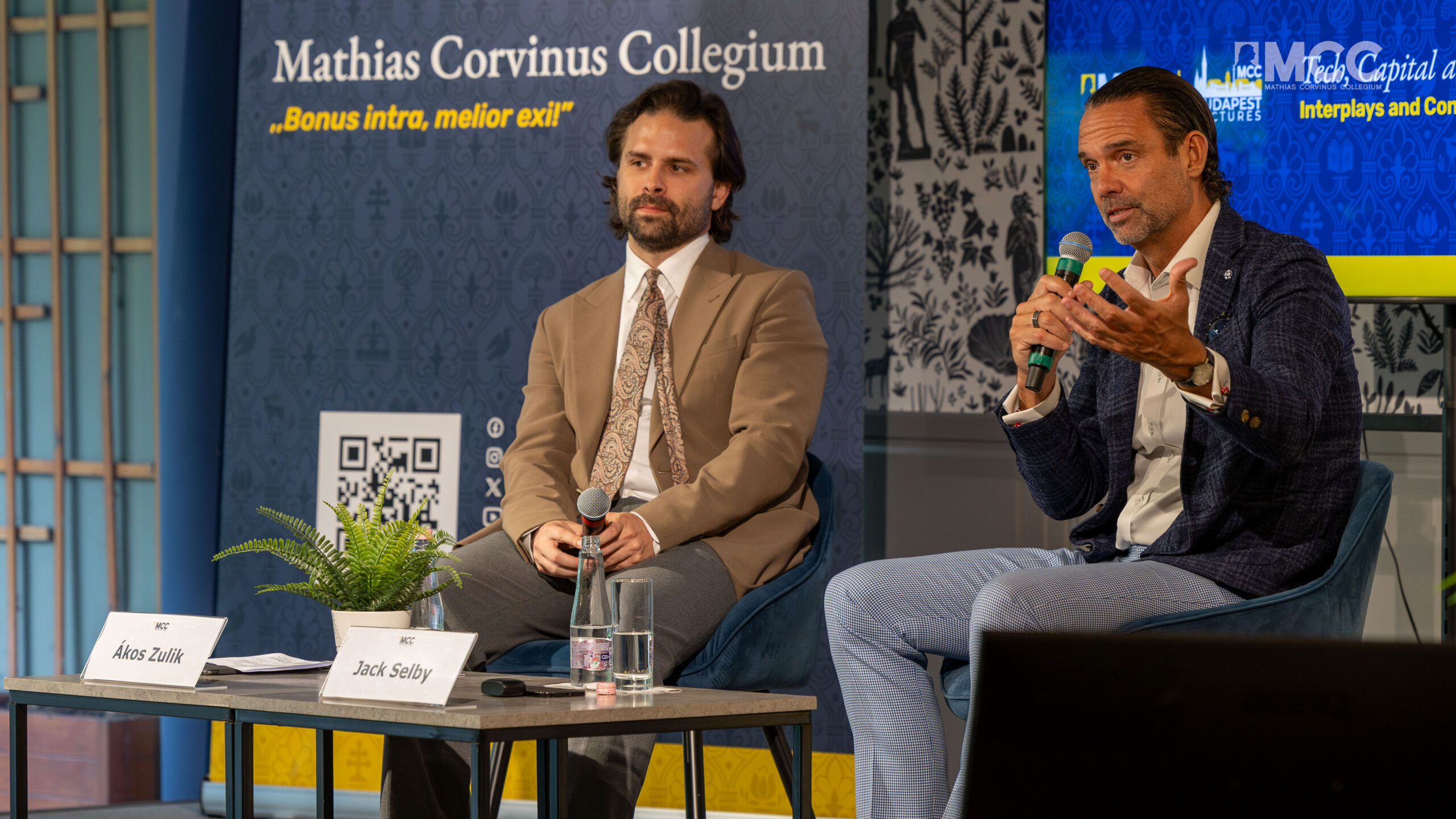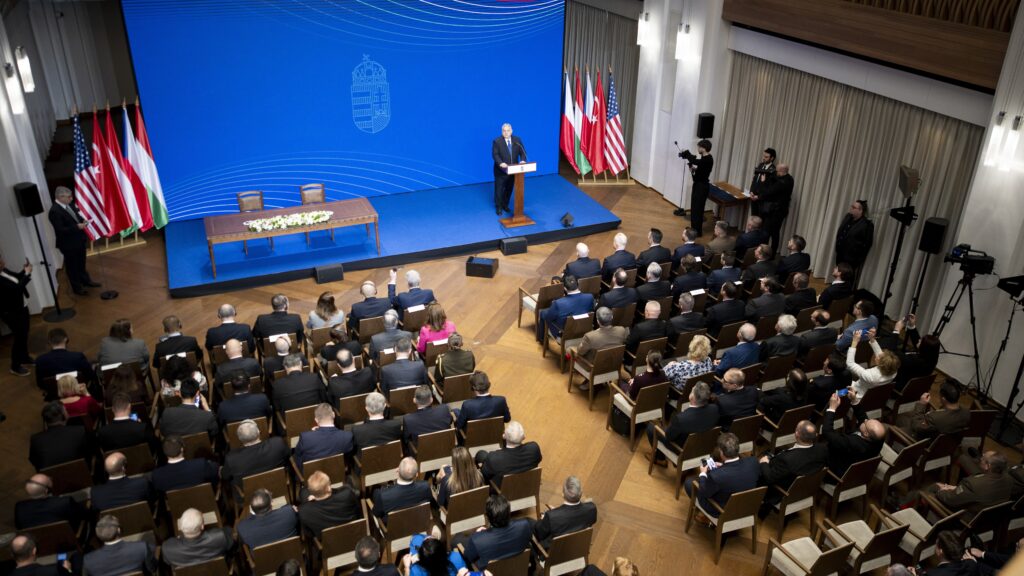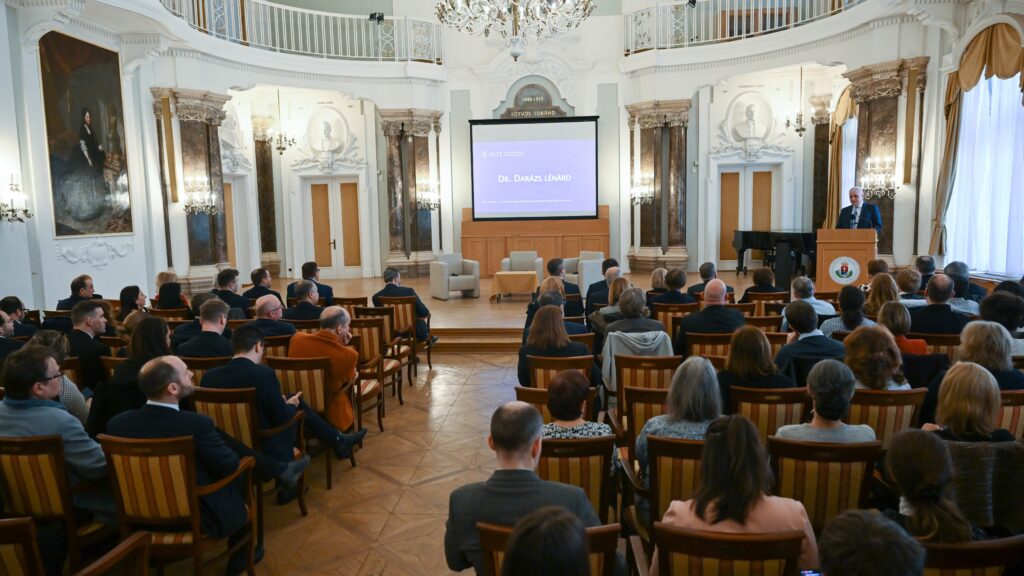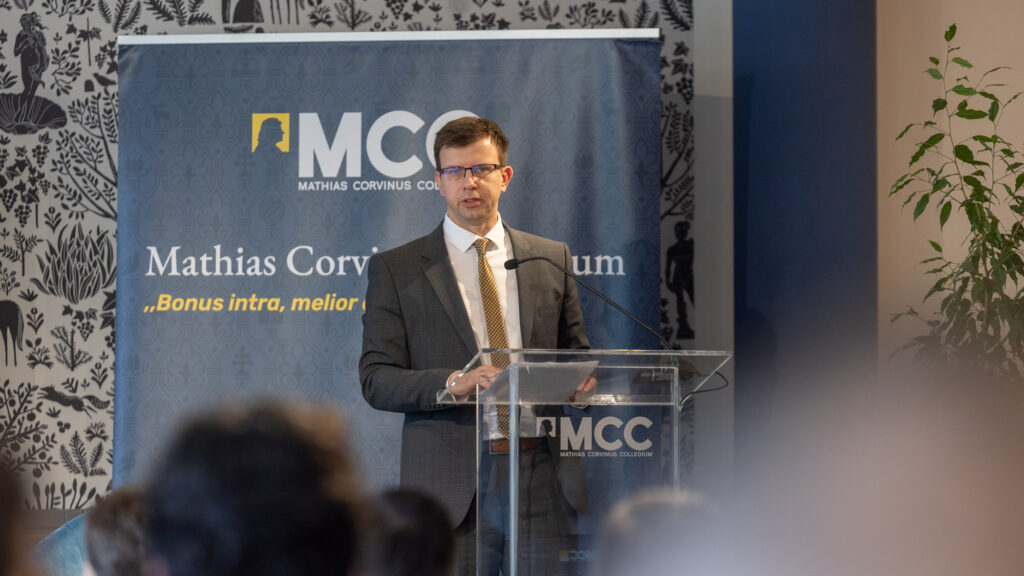The following article is a translation of a press release on the Tech, Capital and Politics: Interplays and Connections MCC event, kindly made available to our editorial staff.
‘It only takes one major investor for everyone to realize that Hungary matters,’ declared Managing Director of Thiel Capital, Founder and Managing Partner of AZ-VC, Jack Selby, at an event hosted by the Mathias Corvinus Collegium (MCC) in Budapest. According to him, Hungary has significant potential to become a key player in the global technology and investment landscape—provided it can deliberately and confidently showcase its strengths.
Selby, who is known as an early leader of PayPal and is now an established venture capitalist, participated in a discussion moderated by Ákos Zulik, Senior Lecturer of the Centre for Enterprise Research at MCC and Head of CEE Connectivity Hub. In a frank and forward-looking exchange, Selby said that Hungary has outstanding capabilities in hardware development and manufacturing, while the US–Hungary relationship also provides a solid foundation for a new era.
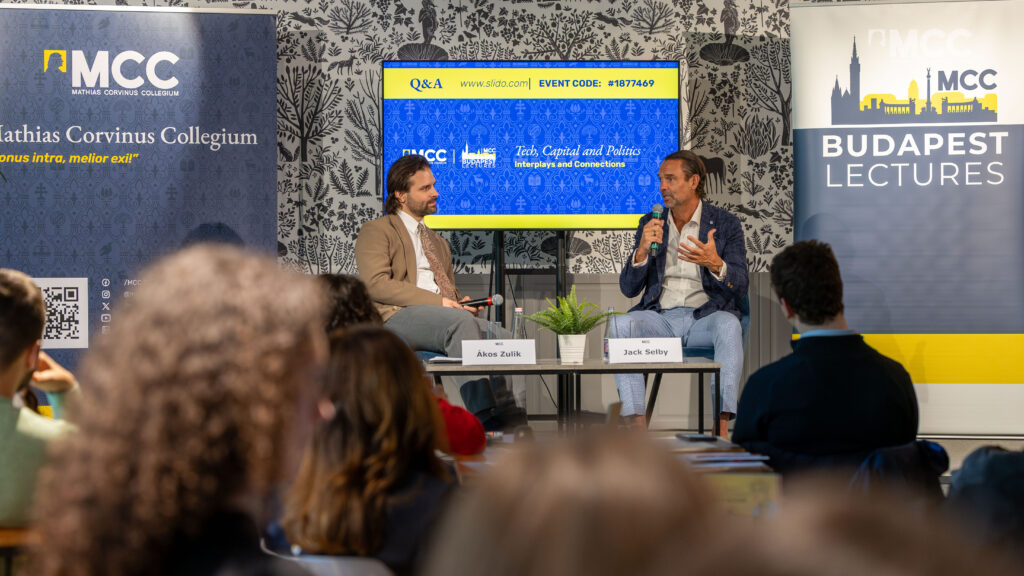
In his view, Hungary could become a competitive alternative to Western European countries in the global startup and venture capital market. This is supported by the presence of highly skilled Central European tech professionals and lower operational costs. As the United States restructures its foreign trade and business relations in the post-pandemic era, Central Europe—and Hungary in particular—has a unique opportunity in the global realignment.
‘The US leads in software development, but the future belongs to those who understand hardware as well—and Hungary is sitting on a true goldmine in that area,’ Selby remarked.
The presence of companies like Morgan Stanley, the rise of high-value-added industries—such as pharmaceuticals—and a well-educated workforce all indicate that the country is ready to step onto the international stage. According to Selby, the diversification of supply chains led by US companies offers further opportunities for Hungary, particularly in the fields of engineering and industrial expertise.
At the same time, he added that visibility and financing remain weak points. ‘We need to know what we’re good at—and we must represent that clearly, loudly, and on a national level,’ he emphasized. ‘If we don’t tell our own story, no one else will do it for us.’ Selby believes that the current moment presents a rare opportunity for Hungary to establish technology-driven companies and for Central Europe to become the continent’s startup hub.
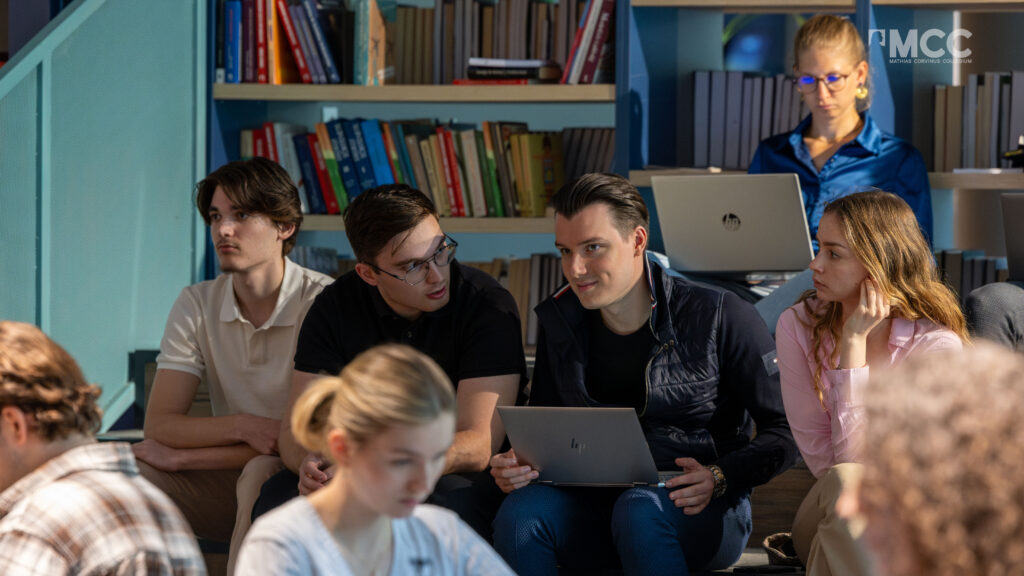
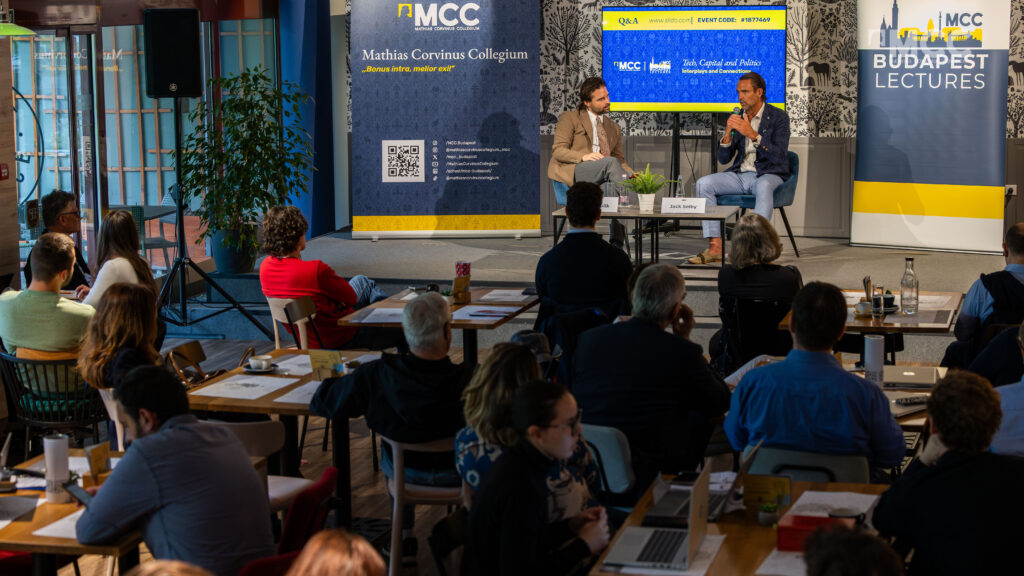
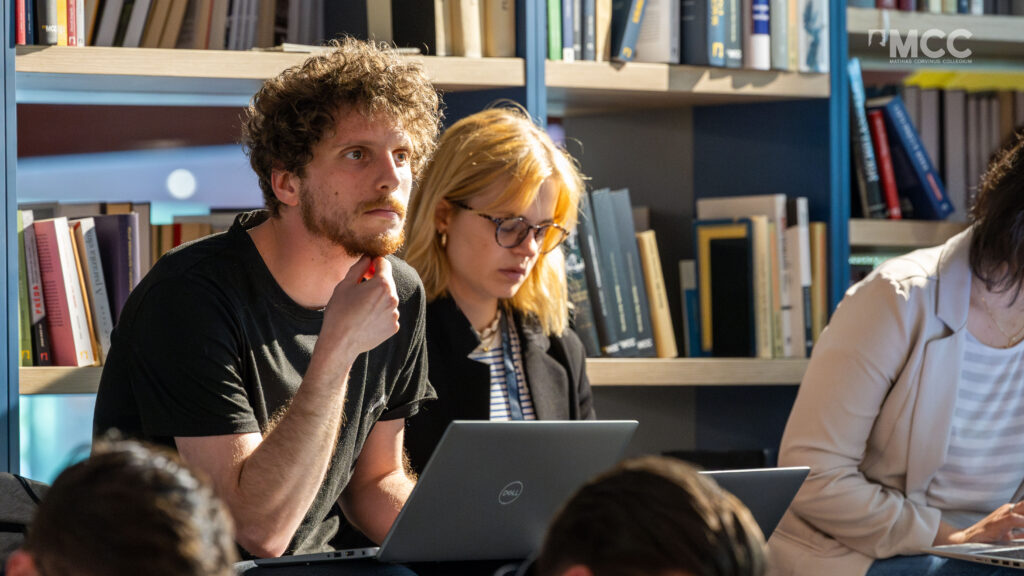
The talent base is there, the demand for resources is growing as AI becomes more widespread, and it is becoming clear that the next big breakthrough will be in hardware. This makes Central Europe a prime destination for investment. However, for Hungary to truly seize this opportunity, it needs greater ambition and a more conscious connection between entrepreneurial energy and smart capital.
‘Financing is the bridge—and if that bridge is built, Hungary can not only participate in these processes but take a leading role in them,’ Selby stated.
The event marked another milestone in MCC’s ongoing efforts to position Hungary as a key player on the global innovation map, highlighting how local expertise, engineering capabilities, and manufacturing capacity can serve as the foundation for a new, mutually beneficial US–Hungarian partnership.
Related articles:

